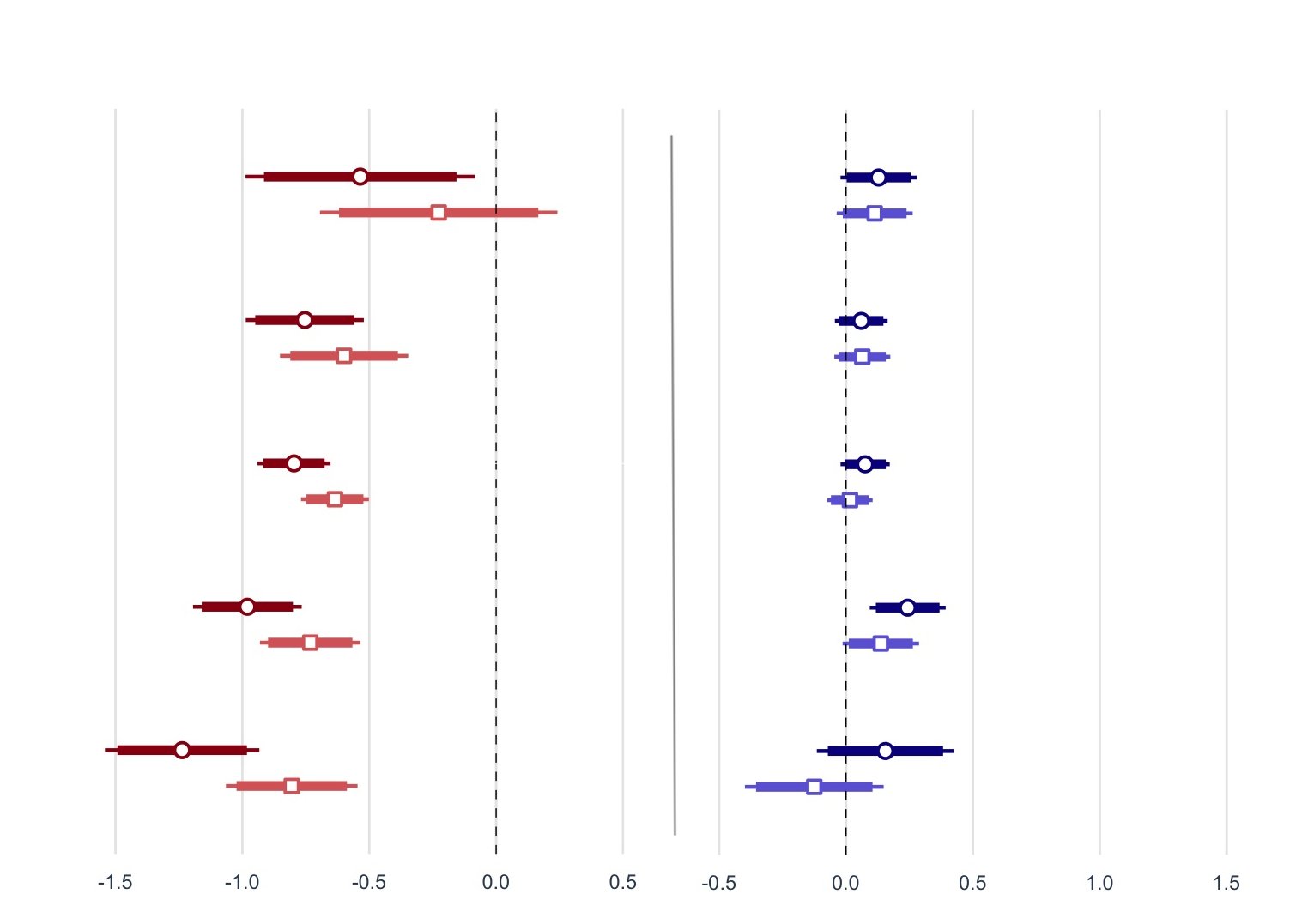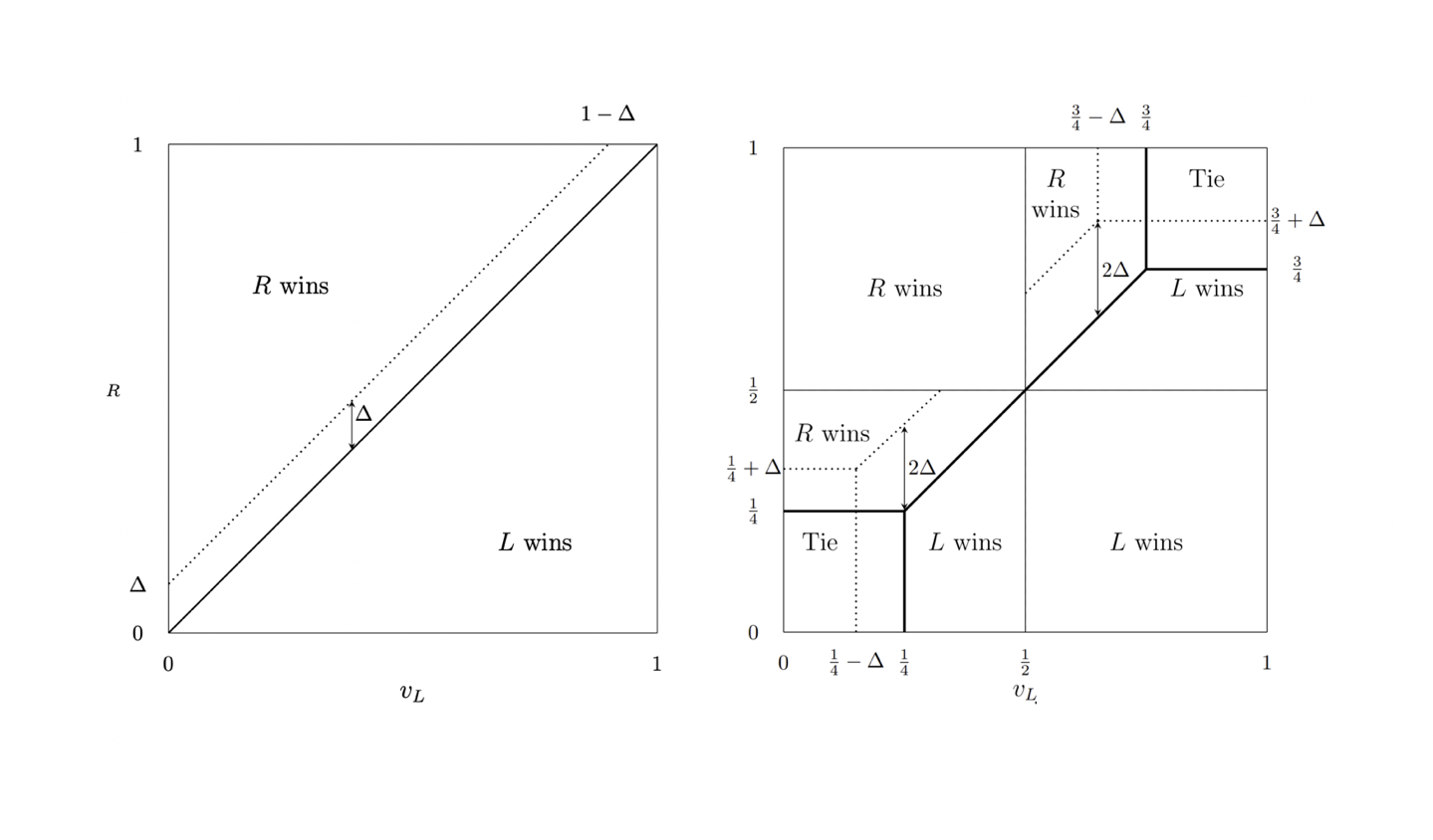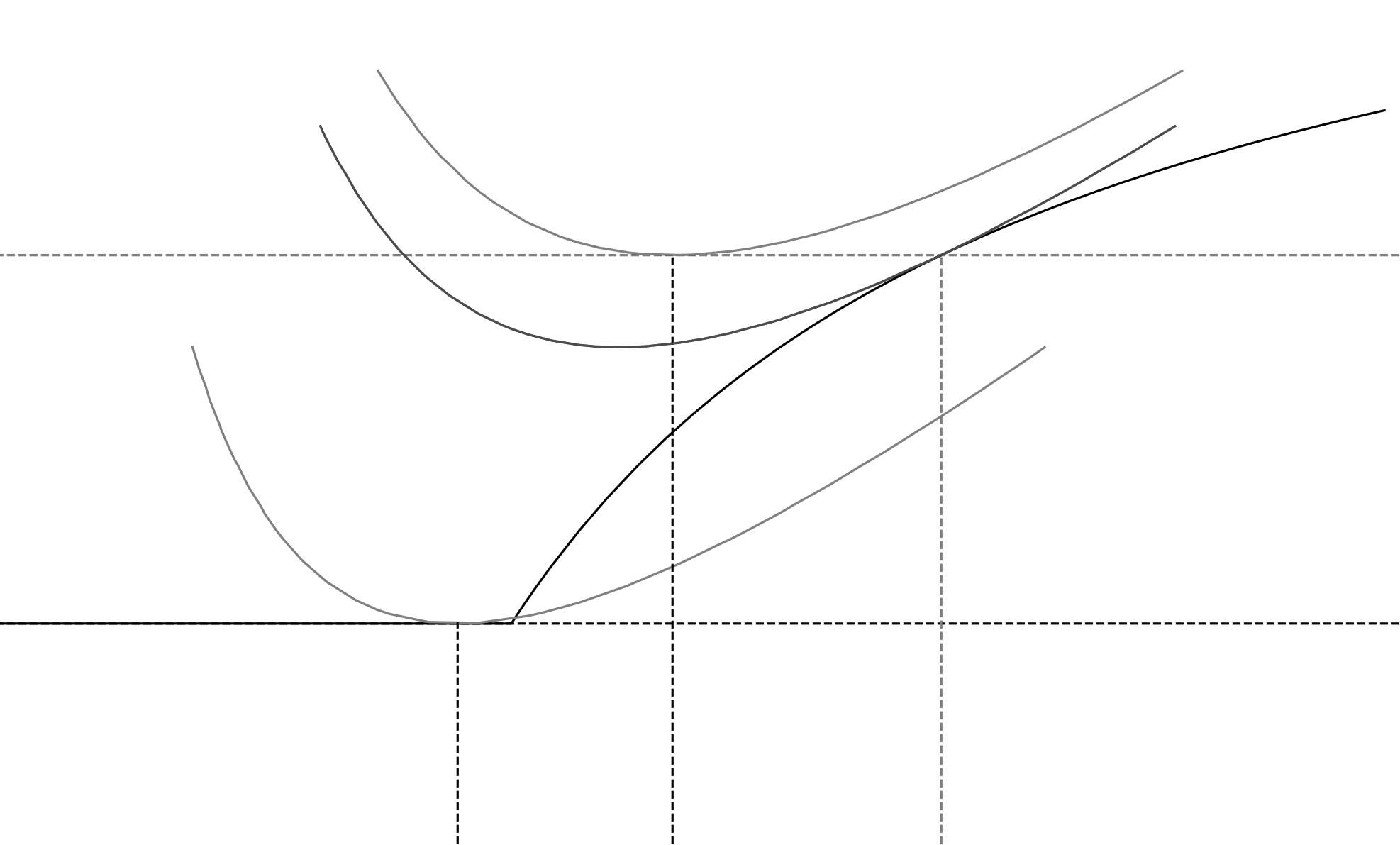Floyd Jiuyun Zhang
About Me
I am an economist on Amazon’s pricing science team. Prior to Amazon, I was an economist and machine learning engineer at Instacart. I received my PhD from Stanford University’s Graduate School of Business in 2022, where I researched the economics of political institutions and behaviour. I have also studied at the Vancouver School of Economics at the University of British Columbia, earning a bachelor’s and a master’s degree in 2016 and 2017 respectively.
Publications
-
 Nature Human Behaviour
Nature Human Behaviour (2023)In a large-sample pre-registered online experiment, participants were randomly assigned to receive information about the journal Nature's endorsement of Joe Biden. The informational treatment substantially reduced and polarized confidence in Nature and the scientific community among participants, and the behavioural impacts of this belief update include 38.3% lower demand for public health information attributed to Nature among Trump supporters. I found no evidence that the endorsement changed participants' views about Biden or Trump.Select coverage: Nature Editorial (official response), Nature News & Views, Politico, The New York Times, The Washington Post (×2), The Wall Street Journal, Reason Magazine, Morning Brew, The Atlantic (×2, ×3, ×4), University of Chicago Podcast Network, Copernicus (Jagiellonian University, Poland), Nature Asia (Japan), The Lancet (UK), the i (UK), La Nación (Argentina), Le Point (France), Süddeutsche Zeitung (Germany)
Nature Human Behaviour
Nature Human Behaviour (2023)In a large-sample pre-registered online experiment, participants were randomly assigned to receive information about the journal Nature's endorsement of Joe Biden. The informational treatment substantially reduced and polarized confidence in Nature and the scientific community among participants, and the behavioural impacts of this belief update include 38.3% lower demand for public health information attributed to Nature among Trump supporters. I found no evidence that the endorsement changed participants' views about Biden or Trump.Select coverage: Nature Editorial (official response), Nature News & Views, Politico, The New York Times, The Washington Post (×2), The Wall Street Journal, Reason Magazine, Morning Brew, The Atlantic (×2, ×3, ×4), University of Chicago Podcast Network, Copernicus (Jagiellonian University, Poland), Nature Asia (Japan), The Lancet (UK), the i (UK), La Nación (Argentina), Le Point (France), Süddeutsche Zeitung (Germany) Journal of Politics
Selective Exposure and Electoral Competition (with Avidit Acharya, Peter Buisseret, and Adam Meirowitz)Journal of Politics (2025)We theoretically study how selective information exposure affects electoral competition and policy polarization by analyzing a Calvert-Wittman probabilistic voting model in which voters only receive valence information slanted to confirm their predispositions. Contrary to predictions of prior works, it reduces policy polarization relative to a benchmark where voters all consume information from a neutral source. The result is robust to non-Bayesian voters who are systematically manipulated by biased signals.
Journal of Politics
Selective Exposure and Electoral Competition (with Avidit Acharya, Peter Buisseret, and Adam Meirowitz)Journal of Politics (2025)We theoretically study how selective information exposure affects electoral competition and policy polarization by analyzing a Calvert-Wittman probabilistic voting model in which voters only receive valence information slanted to confirm their predispositions. Contrary to predictions of prior works, it reduces policy polarization relative to a benchmark where voters all consume information from a neutral source. The result is robust to non-Bayesian voters who are systematically manipulated by biased signals.
Patents
-
 U.S. Patent App
Reinforcement Learning-based Optimization of Textual Artifacts Using Generative Artificial Intelligence (with Tilman Drerup)U.S. Patent App. 18/820,097 (2025)A system generates text artifacts using a machine learned language model. The text artifacts may be provided to a search engine for providing to users along with search results. The system iteratively improves the set of text artifacts by performing the following steps. The system updates the prompt used to generate the text artifacts based on the performance of the text artifacts to obtain a new prompt. The system executes the machine learned language model using the new prompt to generate a new set of text artifacts. The system evaluates the new set of text artifacts to determine performance of each of the new set of text artifacts. These steps are repeatedly performed to improve the set of text artifacts.
U.S. Patent App
Reinforcement Learning-based Optimization of Textual Artifacts Using Generative Artificial Intelligence (with Tilman Drerup)U.S. Patent App. 18/820,097 (2025)A system generates text artifacts using a machine learned language model. The text artifacts may be provided to a search engine for providing to users along with search results. The system iteratively improves the set of text artifacts by performing the following steps. The system updates the prompt used to generate the text artifacts based on the performance of the text artifacts to obtain a new prompt. The system executes the machine learned language model using the new prompt to generate a new set of text artifacts. The system evaluates the new set of text artifacts to determine performance of each of the new set of text artifacts. These steps are repeatedly performed to improve the set of text artifacts.U.S. Patent App
Simulating A/B Testing Through Large Language Machine-learned Models (with Tilman Drerup and Levi Boxell)U.S. Patent App. 18/421,888 (2025)An online system uses Large Language Models (LLM's) to simulate the behavior of real customers in such tests as a low-cost way to simulate A/B tests. A prompt is constructed for a given customer. The prompt is sent to the LLM with a request to infer the predicted outcome of a treatment. The online system collects the output. Statistical analyses are run based on the output of the previous step to determine which treatment to select for the user.
Work in Progress
-
 Rage Against the Merchant: The Effect of Job Automation on Trade ProtectionUsing a shift-share instrumental variable exploiting differential penatration of industrial robots across industries, I find suggestive causal evidence that U.S. Congress members representing labour markets more exposed to automation vote for more restrictive trade policies. The magnitude of the impact of robots on protectionism is quantitatively similar to experiencing an import shock of comparably large labour market impact. This effect is driven by incumbent response instead of electoral selection and is more pronounced in low-information media markets. I interpret the results as systematic misattribution of labour market disruptions but also discuss caveats concerning the interpretation and the IV strategy.
Rage Against the Merchant: The Effect of Job Automation on Trade ProtectionUsing a shift-share instrumental variable exploiting differential penatration of industrial robots across industries, I find suggestive causal evidence that U.S. Congress members representing labour markets more exposed to automation vote for more restrictive trade policies. The magnitude of the impact of robots on protectionism is quantitatively similar to experiencing an import shock of comparably large labour market impact. This effect is driven by incumbent response instead of electoral selection and is more pronounced in low-information media markets. I interpret the results as systematic misattribution of labour market disruptions but also discuss caveats concerning the interpretation and the IV strategy. Nationalism and Preferences for Redistribution in Autocracies: The Opioid of the Masses?Why do autocrats promote nationalism? I present a simple model of endogenous identity formation in a stylized autocratic political economy where distributive conflicts are resolved by the threat of revolution. I show that the salience of national identity reduces citizen demand for income redistribution and political power, and that the structural parameters can be identified econometrically with a random utility model and a factorial survey experiment. Equilibrium implications of these behavioural predictions for growth and inequality are derived and discussed in relations to existing work on redistribution, authoritarian growth and control.
Nationalism and Preferences for Redistribution in Autocracies: The Opioid of the Masses?Why do autocrats promote nationalism? I present a simple model of endogenous identity formation in a stylized autocratic political economy where distributive conflicts are resolved by the threat of revolution. I show that the salience of national identity reduces citizen demand for income redistribution and political power, and that the structural parameters can be identified econometrically with a random utility model and a factorial survey experiment. Equilibrium implications of these behavioural predictions for growth and inequality are derived and discussed in relations to existing work on redistribution, authoritarian growth and control.
Referee Services
-
Games and Economic Behavior , Journal of Economics, Political Behavior (×2), Political Research Quarterly (×2), Research on Aging, Social and Personality Psychology Compass, Social Choice and Welfare (×2)
Select Grants and Awards
- American Democracy Fellowship, Stanford Institute for Research in the Social Sciences (IRiSS), 2021. Research grant for publication Political Endorsement by Nature and Trust in Scientific Expertise During COVID-19 (Nature Human Behaviour, 2023)
- Ronald I. McKinnon Memorial Graduate Fellowship, King Center on Global Development, 2021. Research grant for project "Nationalism and Preferences for Redistribution in Autocracies: Theory and Experimental Evidence".
- Stanford Graduate School of Business PhD Fellowship, Stanford Graduate School of Business, 2017-2022.
- Jamieson-Rosenbluth Prize for Honours Thesis in Economics, Vancouver School of Economics, University of British Columbia, 2016.
Teaching Assisant and Staff
- Stanford GSB POLECON 680: Foundations of Political Economy (PhD; 2019 & 2020)
- Stanford GSB POLECON 681: Economic Analysis of Political Institutions (PhD; 2019 & 2020)
- Stanford ECON 220: Political Economy I (PhD; 2019, 2020 & 2021)
- Stanford GSB FINANCE 341: Modeling for Investment Management (MBA; 2019)
- Stanford GSB MGTECON 341: Managerial Economics (MBA; 2019)
- Stanford GSB POLECON 231: Strategy Beyond Markets (MBA; 2019)
- UBC ECON 306: Honours Intermediate Microeconomic Analysis II (Undergrad, 2017)
- UBC ECON 307: Honours Intermediate Macroeconomic Analysis II (Undergrad, 2017)
- UBC ECON 304: Honours Intermediate Microeconomic Analysis I (Undergrad, 2016)
- UBC ECON 305: Honours Intermediate Macroeconomic Analysis I (Undergrad, 2016)
Powered by Jekyll and Minimal Light theme.